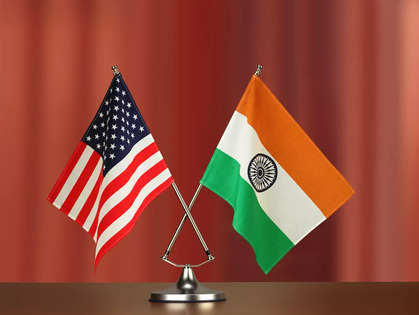India-US TRUST Initiative
Recently, India and the United States launched the TRUST initiative to enhance cooperation in the recovery and processing of critical minerals. This initiative aims to reduce barriers to technology transfer and address export controls. It was announced during Prime Minister Narendra Modi’s visit to Washington and focuses on creating robust supply chains for essential materials like lithium and rare earth elements (REEs). The partnership aims to counter China’s dominance in the critical minerals sector.
Background of the TRUST Initiative
The TRUST initiative builds on previous collaborations, including India’s entry into the US-led Minerals Security Finance Network and the Minerals Security Partnership. Unlike earlier multilateral agreements, TRUST emphasises bilateral engagement. This approach allows India and the US to accelerate efforts in securing critical mineral supply chains.
Objectives of the Initiative
The main goals of the TRUST initiative include encouraging innovation across various sectors. These sectors include defence, artificial intelligence, semiconductors, quantum computing, biotechnology, energy, and space. The initiative seeks collaboration among governments, academia, and the private sector to drive advancements in these fields.
Focus on Pharmaceuticals
TRUST also aims to strengthen supply chains for pharmaceuticals, particularly active pharmaceutical ingredients (APIs). These ingredients rely on critical minerals such as lithium and magnesium. India is the second-largest manufacturer of APIs globally, making this focus vital for sustaining its pharmaceutical industry.
National Programmes Supporting TRUST
The initiative is complemented by national programmes in both countries. The US Energy Act allocated funds for critical minerals and materials, while India approved the National Critical Minerals Mission with a substantial budget. These programmes aim to enhance exploration, recycling, and research in critical minerals.
Deepening Cooperation
TRUST aims to deepen cooperation by addressing technology transfer barriers and enhancing high-tech commerce. Although it does not provide Indian companies with tax benefits under the US Inflation Reduction Act, it broadens the scope for collaboration. The initiative builds on the previous Minerals Security Finance Network to create synergies between development finance institutions and export credit agencies.
Importance of Critical Minerals
Critical minerals and REEs are essential for strategic industries like defence and energy. Elements such as neodymium and lithium are crucial for advanced technologies, including electric vehicles and high-performance magnets. Securing diversified supply chains is vital for technological sovereignty and national security, especially given China’s dominance in the REE market.
Challenges Ahead
Despite the potential benefits of the TRUST initiative, challenges remain. India still relies heavily on imports for critical minerals, particularly heavy rare earths. Developing domestic capabilities and reducing dependency on imports will be crucial for the success of this initiative.
Month: Current Affairs - February, 2025
Category: International / World Current Affairs







